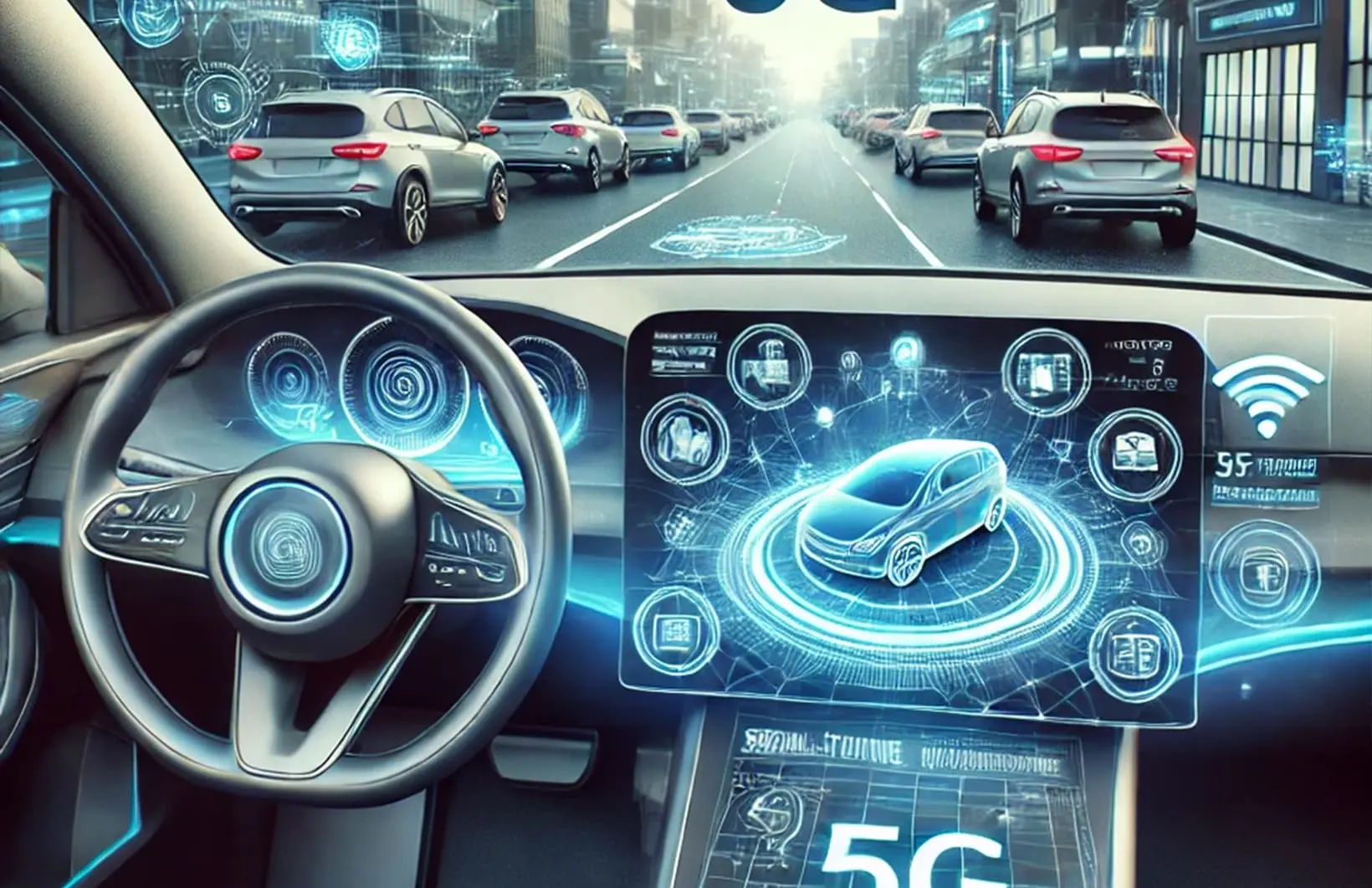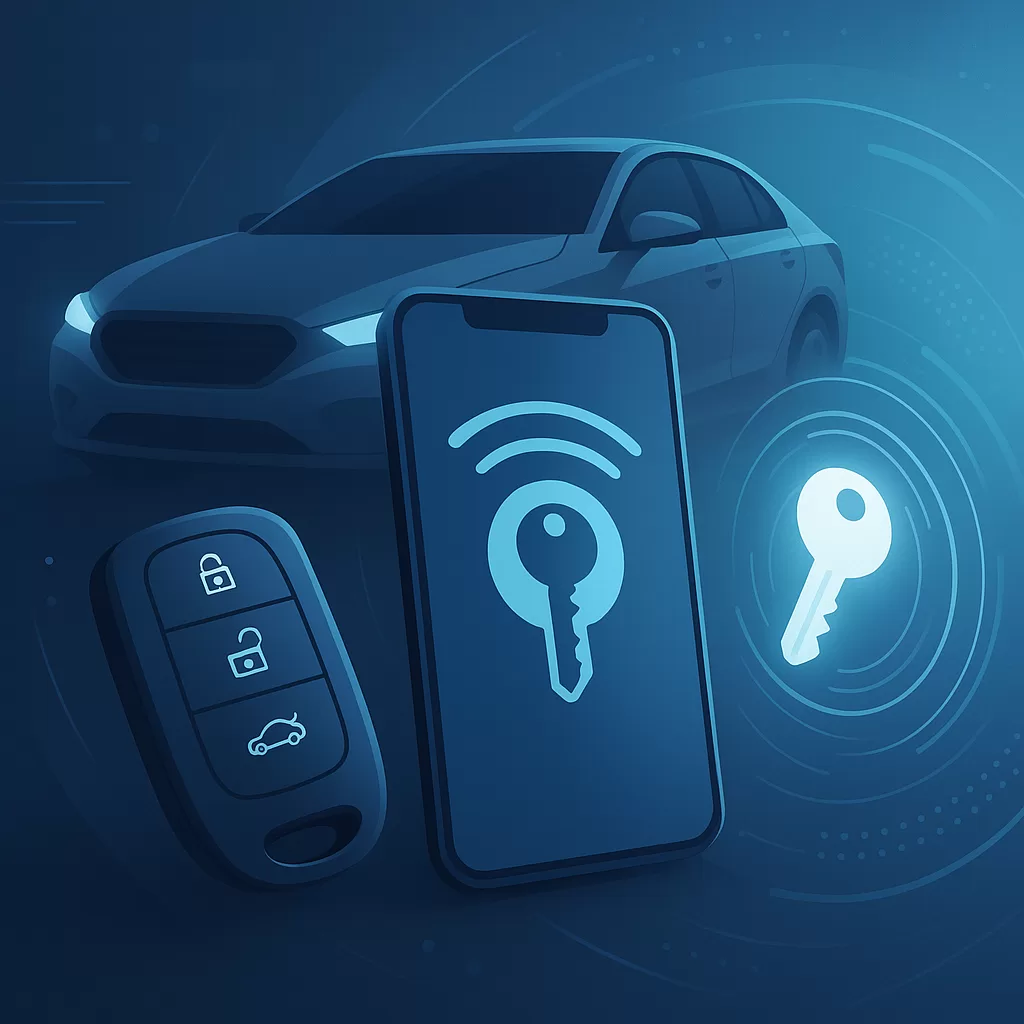The integration of 5G technology in the automotive world marks a revolutionary shift, bringing connected cars into the mainstream. This leap forward enhances vehicle-to-everything (V2X) communication, enabling vehicles to interact with each other, surrounding infrastructure, and cloud-based networks. From infotainment systems that offer seamless streaming to advanced driving aids that enhance safety, 5G is setting the stage for a smarter, more connected driving experience.
Importantly, these advancements are also influencing the auto leasing market. This article delves into how 5G is driving the evolution of connected cars, its impact on auto leasing, and the facts and statistics that demonstrate this transformation.
The Role of 5G in Revolutionizing Connected Cars
5G technology has ushered in an era of unmatched data speed, low latency, and greater connectivity. Unlike 4G LTE, 5G can handle data transfers up to 100 times faster, facilitating real-time interactions that are essential for connected cars. This technology enables a higher level of responsiveness in vehicles, enhancing safety and user experience.
Understanding V2X Communication
V2X communication is central to connected car technology, enabling vehicles to share data with:
- Other Vehicles (V2V): Helping prevent accidents by sharing information about speed, direction, and road conditions.
- Infrastructure (V2I): Communicating with traffic signals and road sensors to manage traffic flow efficiently.
- Pedestrians (V2P): Ensuring the safety of road users by detecting their movements.
- Networks (V2N): Providing access to services such as navigation updates, streaming content, and over-the-air software updates.
According to Statista, the connected car market is expected to exceed $166 billion by 2025, propelled largely by 5G’s capabilities.
Enhancements in Infotainment and Smart Driving Aids
The most visible impact of 5G technology is on infotainment systems, which now support high-quality streaming, real-time navigation, and seamless integration with mobile devices. Passengers and drivers can enjoy a richer, uninterrupted digital experience while on the road.
5G also powers smart driving aids, including adaptive cruise control, lane-keeping assistance, and automated parking. These aids leverage real-time data to make precise and timely decisions, enhancing both safety and driving convenience.
Relevant Statistics:
- 5G-enabled vehicles made up nearly 15% of new car sales in 2023, with adoption rates expected to increase as automakers embrace this technology (Source: McKinsey).
- A Deloitte survey showed that 65% of respondents are more inclined to lease a car that comes equipped with enhanced infotainment and safety features powered by 5G.
5G’s Influence on the Auto Leasing Market
The push toward 5G-connected cars is not only enhancing the driving experience but also reshaping the auto leasing industry. Leasing has become increasingly attractive for consumers who wish to access the latest automotive technology without the long-term commitment of buying a car.
Why 5G Makes Leasing More Appealing
For consumers, leasing a 5G-connected vehicle means experiencing top-tier features without significant upfront costs. The auto leasing industry is adapting to this demand by expanding their offerings to include more connected cars. This shift caters to tech-focused lessees who value access to the most current technologies.
Business Leasing and Fleet Management
Companies that lease vehicle fleets are poised to reap considerable benefits from 5G. The enhanced V2X capabilities of connected cars lead to optimized route planning, reduced fuel consumption, and improved safety records. Fleet operators can also use data from connected vehicles for better logistics management and preventive maintenance, reducing overall operational expenses.
A report by Frost & Sullivan found that over 40% of fleet managers plan to increase their use of auto leasing as a cost-effective way to integrate the latest vehicle technology.
Challenges in Implementing 5G-Connected Cars
Despite the numerous benefits, there are some challenges associated with the integration of 5G technology in the automotive industry:
Data Security Concerns
With increased connectivity comes the potential risk of cyberattacks. Ensuring robust cybersecurity measures is vital to protect vehicles and their users from data breaches. Automakers and leasing companies must work closely to implement security protocols that safeguard personal data and vehicle integrity.
Infrastructure Requirements
The successful implementation of 5G in connected cars depends on the availability of the necessary infrastructure. While cities and highly populated areas are equipped with 5G coverage, more remote regions may lag behind. This uneven distribution can affect the full utility of 5G-powered features in certain areas.
The Future of Auto Leasing with 5G
The impact of 5G technology on auto leasing is only set to grow. As vehicles become more connected, leasing will continue to be a preferred option for both individual consumers and businesses looking to access the latest innovations without the long-term risks of ownership.
Autonomous Vehicles and Leasing Trends
The path toward fully autonomous vehicles is also intertwined with 5G. Real-time data processing facilitated by 5G is critical for autonomous driving. The early adoption of autonomous technology is likely to boost interest in leasing as consumers opt for short-term commitments while the technology matures.
Positioning for Success: Leasing Companies and 5G
Leasing companies that integrate 5G-enabled vehicles into their fleets can position themselves as leaders in a technology-driven market. These companies will attract a broader customer base looking for tech-forward options and can also benefit from the operational insights provided by connected vehicles. Data on driving patterns and vehicle usage can be used to offer better customer service and anticipate maintenance needs, boosting overall efficiency.
Key Points and What’s Next
The integration of 5G technology is transforming not just the automotive sector but also the way consumers and businesses approach auto leasing. The enhanced connectivity allows for safer, more connected, and smarter driving experiences. For consumers, leasing offers a unique opportunity to experience these advancements without the financial burden of ownership. Businesses, on the other hand, benefit from the operational efficiencies and cost savings that come with connected fleets.
Summary:
- Auto leasing is becoming more appealing due to the rapid integration of 5G-connected vehicles.
- 5G technology enables advanced features such as V2X communication, enhanced infotainment, and improved smart driving aids.
- The future of leasing is likely to involve a strong focus on autonomous vehicles and data-driven fleet management.
As 5G networks continue to expand, the adoption of connected cars will likely surge, offering exciting opportunities for the auto leasing industry and shaping the future of how we travel. By embracing these changes, leasing companies can not only meet consumer demand but also enhance their competitive position in an evolving market.
Disclaimer
The information provided on this website, including articles, images, statistics, and references, is intended for informational and educational purposes only.
Presidential Auto Leasing & Sales strives to ensure that all information is accurate and up to date at the time of publication. However, we make no guarantees regarding the completeness, reliability, or accuracy of any content.
This website and its content do not constitute financial or legal advice, nor do they represent an offer or commitment to lease, sell, or finance any specific vehicle. Lease terms, pricing, and incentives may vary by manufacturer, location, and credit approval.
All images used on this website are either:
Owned by Presidential Auto Leasing & Sales,
Licensed for commercial use, or
Used under fair use for commentary, education, or news reporting, with proper attribution when applicable.
If you believe that any image or material on this site infringes on copyright, please contact us immediately at info@presidnetialautony.com, and we will review and take appropriate action.
About Presidential Auto Leasing & Sales
Presidential Auto Leasing & Sales is a licensed automotive broker serving New York, New Jersey, Connecticut, and Pennsylvania. We specialize in new vehicle leasing, financing assistance, and personalized customer service. Our mission is to make car leasing simple, transparent, and affordable for every driver.
For more information, call us at (718) 313-0044.



